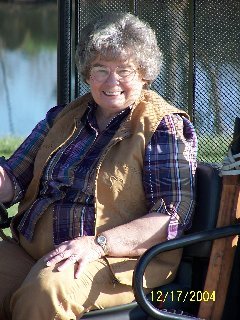A special double digit birthday for Samuel was celebrated today because he reached 10. It was fun at the small family party tonight to hear him tell about all the wondrous things they did this morning in the new kids’ science class he started at John A. Logan College.
I had trouble believing him when he told that they set their hands on fire! His unblemished hands seemed to deny that. But the teacher had them wash their hands in soapy water to which he had added something that got in the bubbles and flamed up and away when the hands were lit. I can’t remember what it was he added but the men all knew and understood. I wouldn’t want to promote this experiment anyway without that teacher there to supervise. And they cut up a cow’s eye. All kinds of such excitement! I liked hearing about it.
His cousin Trent spent the afternoon with him, and they are already anticipating the Star Wars kid party tomorrow afternoon since they are both Star War fans. Big brother Davie’s gift of a Star War chess set was a big hit tonight.
I’d spent the afternoon at Camp Ground Church listening to local people tell their family stories about family members who participated, observed, or dropped off the Trail of Tears through Southern Illinois. These stories also were wondrous but very sad. We cannot imagine the horrors that were forced upon the five civilized tribes--Seminoles, Creeks, Choctaw, Chickasaw, and Cherokees--as treaties were broken with their nations, and whites took over their property and made them march west against their will to a land they feared--and that was already occupied by other tribes.
Trekking from the Ohio River to the Mississippi River, many of the Cherokee were trapped here because of ice floes on the Mississippi. These stranded groups experienced one of the most gruesome times on the Trail of Tears. Their babies sometimes froze in their arms, their bare feet left blood in the snow, and many who died here could not always be properly buried.
Before there was a Camp Ground Church, there was a wooded knoll at that hillside with five nearby springs. Both Native Americans and early pioneers choose to camp there as they traveled the Lusk Trail from east to west or the main trail south to Fort Massac.
George Hileman was an early farmer who acquired that knoll and surrounding farm land. In 1836 during an epidemic of some sort, he and his wife lost two children and buried them near their home.
Some of the first of the eleven Cherokee detachments going through this region during the Forced Removal got across the Big River before the floes. However, perhaps as many as 8000 were stranded here for weeks. Cherokee were spread out from the Ohio River to Dutch Creek and Clear Creek west of Jonesboro, where the sloughs prevented their camping any closer to the Mississippi.
Many were camping at the Hileman farm--some estimate maybe 3000 were there. The freezing Indians cleared the wooded knoll for firewood for their camp fires. The Hilemans gave them permission to bury their dead in the field where their children were buried. In 1850, he gave land for the church when it was established and soon afterward land for the cemetery that exists around the church today. Mr. Hileman's great great great granddaughter, Sandy Boaz and her husband Dwight are members of the Camp Ground congregation. Sandy worked for 20 years accumulating the evidence and documentation that caused the National Park Service to make Camp Ground Church and Cemetery a certified Trail of Tears site. The hospitality shown by this congregation in this beautiful rural church building is always warm and genuine, which must please Mr. Hileman very much. (Yes, I deliberately used a present tense verb. I think he knows about the present congregation following his example.)
The stories told this afternoon made it clear that the suffering was intense and prolonged long after the Trail of Tears. Leaving their beautiful farms and snug cabins behind and starting over from scratch in Indian Territory, a part of which became the state of Oklahoma in 1906, caused continued economic harm that is still felt today. On the other hand, if hardship makes humans tough, the Cherokee who did not die on the Trail of Tears had proof forever after of how strong they were and how deserving they were of the pride they had in themselves.
Yet just as our service people never get over the war-time horrors they live through, James Mooney discovered when he interviewed the Cherokee many decades later that they too were haunted the rest of their lives by the terrible times in Southern Illinois in that dreadful winter of 1838
Yorktown Virginia
-
On Sunday, after our museum day, Wesley and I drove to Yorktown Va. I am
so glad we ventured out looking for a waterfront on this trip. I had to
mercha...
5 years ago












No comments:
Post a Comment